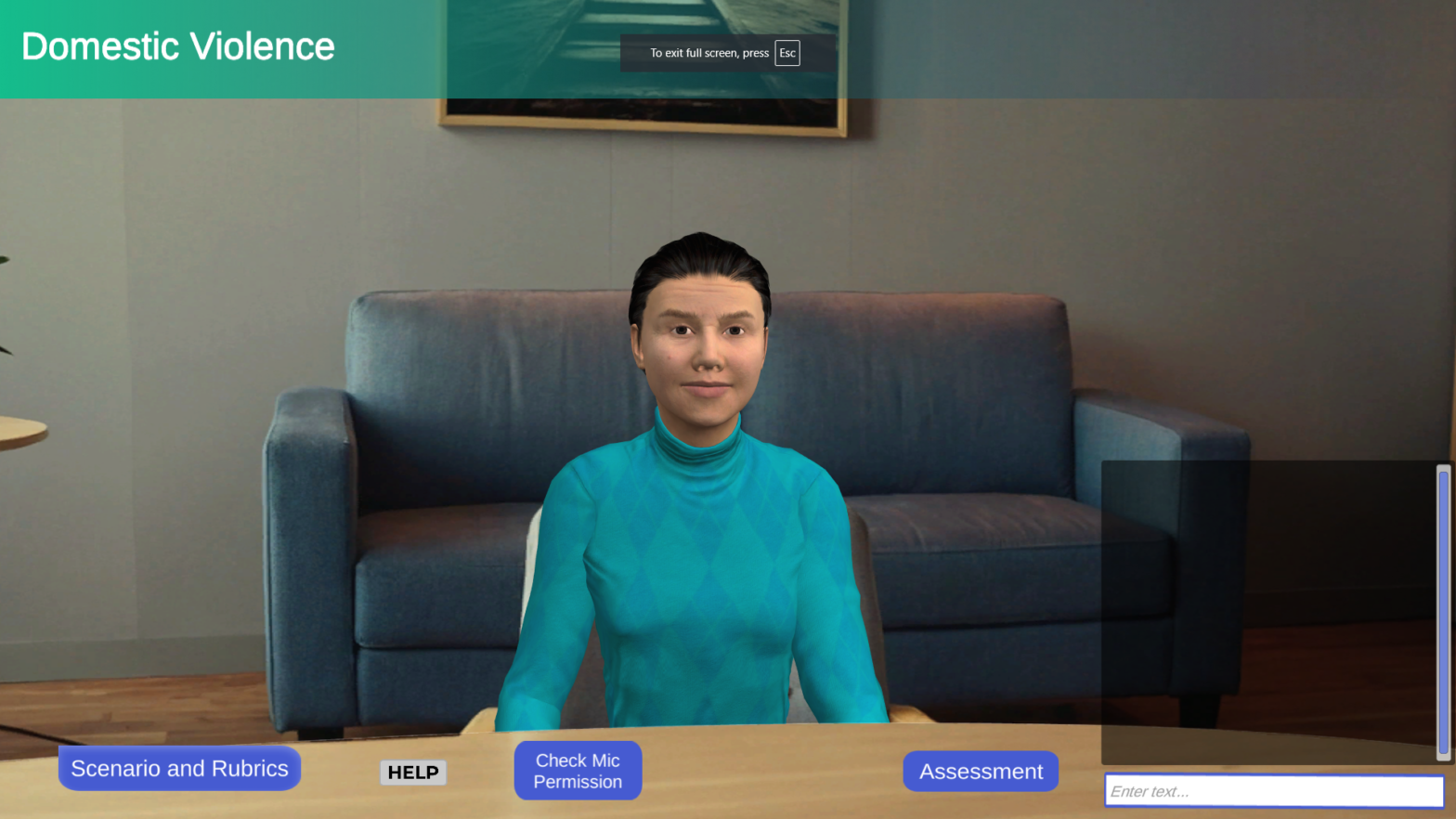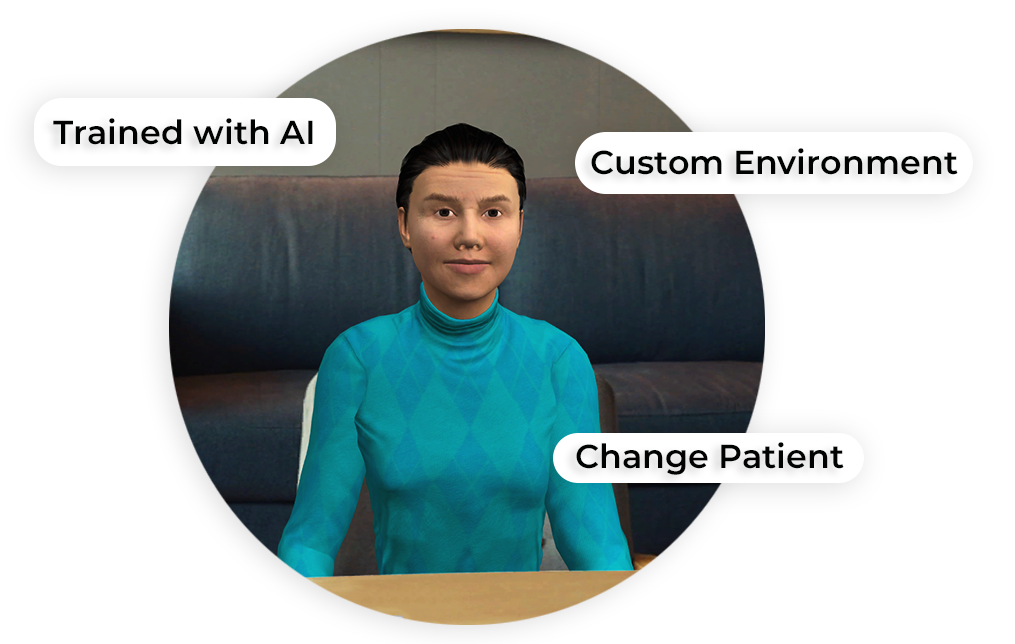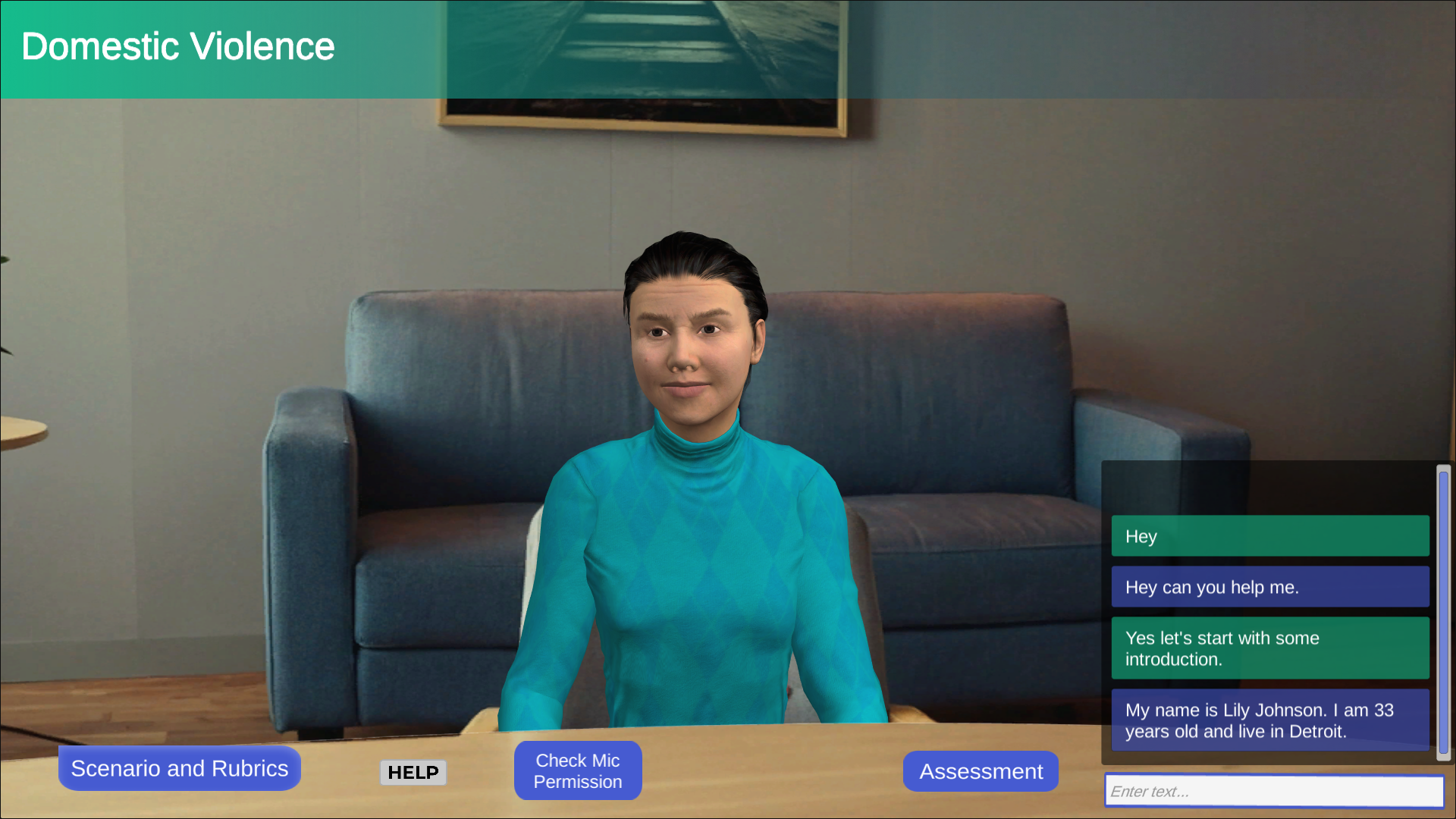Domestic Violence Assessment
Available in VR and web browser
This tool for Domestic Violence assessment is designed to help learners practice their patient assessment skills. Employing end-to-end AI and technologies like large language model (LLM) and deep learning, these virtual ‘clients’ possess the ability to respond like real humans. Learners can conduct a completely organic conversation with the client, asking them about their symptoms and problems faced. Based on the client’s responses, a line of diagnosis can be established, and treatment plan formulated.
The MedVR Ed XR Platform provides trainers and instructors the facility to review conversation logs and analyze learner performance based on customized rubrics. Based on the performance review, trainers will be able to provide precise and effective feedback.
- Gain client’s trust to encourage an open conversation
- Overcome client’s reluctance to share details of violence
- Investigate client’s current state of mental health
- Enquire about minor details related to violence in relationship
- Collect data to help suggest relevant course of action

- National Institute of Mental Health (NIMH). (n.d.). https://www.nimh.nih.gov/
- World Health Organization (WHO). (n.d.). Violence prevention. https://www.who.int/violence_injury_prevention/en/
- American Psychological Association (APA). (n.d.). Domestic violence resources. https://www.apa.org/topics/domestic-violence/index
Customize Your Case
Build your own AI-Humans patient.
MedVR Education is bringing to you a no-code authoring platform to create new patient cases and customized patient history. Put together your own cases by making selections from a wide range of customizing features.
- Create with web-based authoring tool
- Publish in VR, desktop, and mobile devices
- Train your virtual patient by yourself
- Select patient from a diverse background
- Choose preferred virtual environment
- Perform real-time testing
- Track and train new data

 AI Patient Assessment
AI Patient Assessment Natural Language Processing
Natural Language Processing
Core Skills Training

Domestic Violence Assessment
Lily, 32 years old, is married to Paul. They have a seven-year-old son and five-year-old daughter. On a visit to her doctor, Lily had given cues to being in a domestic violence relationship. Lily and Paul had been separated once in their 10-year marriage, but they are back together. Lily is worried for her children and does not want her abusive relationship to affect her children. She has consented to talk about her relationship with Paul.
As a mental health professional, whether a psychiatrist, technician, or someone with a social work background, your task is to gain the trust of the patient, make them feel comfortable, understand their current state of affairs at home, and ask relevant questions. This will help formulate an assessment of the client’s mental health and initiate a means of improvement.


